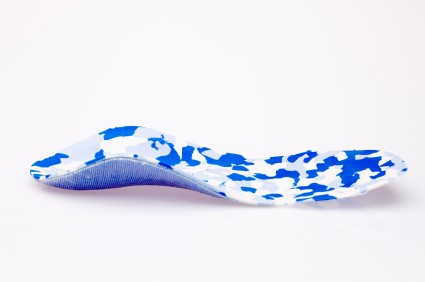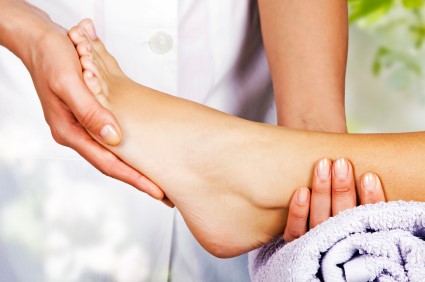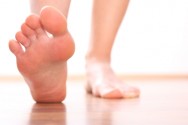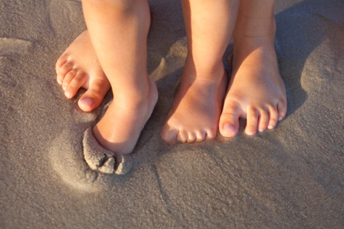Blog
Stretching Alone Will Not Prevent Injury, Try Orthotics
 While in the past stretching has been heralded for its ability to help people avoid tendon injuries, new research suggests that it is actually the opposite. Recent studies link programs including soccer-specific balance training and orthotics, or shock absorbing insoles, to help reduce risk for injury.Dr. David Geier, an orthopedic surgeon and former director of sports medicine at the Medical University of South Carolina, stated that different people have different anatomy of the feet and may benefit from shoe inserts or orthotics.
While in the past stretching has been heralded for its ability to help people avoid tendon injuries, new research suggests that it is actually the opposite. Recent studies link programs including soccer-specific balance training and orthotics, or shock absorbing insoles, to help reduce risk for injury.Dr. David Geier, an orthopedic surgeon and former director of sports medicine at the Medical University of South Carolina, stated that different people have different anatomy of the feet and may benefit from shoe inserts or orthotics.
Orthotics can help provide support and prevent injury to your feet. If you have any questions contact Dr. Michael E. Newman and Dr. Denise Kohler of Pennsylvania. Our doctors will treat your foot and ankle needs.
What are Orthotics?
Orthotics are inserts you can place into your shoes to help with a variety of foot problems such as flat feet or foot pain. Orthotics provide relief and comfort for minor foot and heel pain, but can’t correct serious biomechanical problems in your feet.
Over-the-Counter Inserts
Orthotics come in a wide variety of over-the-counter inserts that are used to treat foot pain, heel pain, and minor problems. For example, arch supports can be inserted into your shoes to help correct over arched or flat feet, while gel insoles are often used because they provide comfort and relief from foot and heel pain by alleviating pressure.
Prescription Orthotics
If over-the-counter inserts don’t work for you, or if you have a more severe foot issue, it is possible to have your podiatrist prescribe custom orthotics. These high quality inserts are designed to treat problems such as abnormal motion, plantar fasciitis, and more severe heel pain.
If you are experiencing minor to severe foot or heel pain, it’s recommended to speak with your podiatrist on the possibilities of using orthotics. A podiatrist can determine which type of orthotic is right for you and allow you to take the first steps towards being pain free.
If you have any questions please feel free to contact our offices located in Plymouth Meeting and Ambler, PA. We offer the newest diagnostic tools and technologies to treat your foot and ankle needs.
Kevin Durant Post-Surgical Recovery on Time for the Next Season
 Kevin Durant of the Oklahoma City Thunder is participating in the Orlando Pro Summer League since his foot is healing on schedule post-surgery. Late March Durant had surgery on his right foot to repair a serious of soreness due to a previously inserted screw creating chronic soreness as it was pushing into another bone. Although this was the toughest year in Durant’s career, he has remained hopeful and will likely return next year.
Kevin Durant of the Oklahoma City Thunder is participating in the Orlando Pro Summer League since his foot is healing on schedule post-surgery. Late March Durant had surgery on his right foot to repair a serious of soreness due to a previously inserted screw creating chronic soreness as it was pushing into another bone. Although this was the toughest year in Durant’s career, he has remained hopeful and will likely return next year.
Foot surgery is sometimes necessary to fix a foot ailment. If you have any concerns about your foot and ankle needs contact Dr. Michael E. Newman and Dr. Denise Kohler of Pennsylvania. Our doctors will treat your foot and ankle needs.
When Is Surgery Necessary?
Foot and ankle surgery is generally reserved for cases in which less invasive, conservative procedures have failed to help with the problem. Some of the cases in which surgery may be necessary are:
- Removing foot deformities like bone spurs and bunions
- Severe arthritis that has caused bone issues
- Cosmetic reconstruction
- Bunionectomy for painful bunions
- Surgical fusion for realignment of bones
- Neuropathy decompression surgery to treat nerve damage
What Types of Surgery Are There?
The type of surgery you receive will depend on the nature of the problem you have. Some of the possible surgeries include:
Benefits of Surgery
Although surgery is usually a last resort, it can provide more complete pain relief compared to non-surgical methods and may allow you to finally resume full activity.
Surgical techniques have also become increasingly sophisticated. Techniques like endoscopic surgery allow for smaller incisions and faster recovery times.
If you have any questions please feel free to contact our offices located in Plymouth Meeting and Ambler, PA. We offer the newest diagnostic tools and technology to treat your foot and ankle needs.
Kansas Man Quits Day Job to Run Cross Country Barefoot Full Time
 Jake Brown of Kansas was originally a contractor when he quit his job to take up barefoot running around the country full time. Since then Brown has decided he wants to be the first person to run across the country barefoot making his way through Wichita, Augusta, and Huntington Beach. He is estimated to reach Manhattan, NY by August of this year. Brown typically likes running on trails and paved roads since they are easier on the feet.
Jake Brown of Kansas was originally a contractor when he quit his job to take up barefoot running around the country full time. Since then Brown has decided he wants to be the first person to run across the country barefoot making his way through Wichita, Augusta, and Huntington Beach. He is estimated to reach Manhattan, NY by August of this year. Brown typically likes running on trails and paved roads since they are easier on the feet.
Barefoot running has its own share of benefits and disadvantages. To learn more about this trend, consider speaking to Dr. Michael E. Newman of Pennsylvania. Our doctor will explain the facts of barefoot running and help you decide if it’s a practice you’d like to take up.
Barefoot Running
The Impact of Barefoot Running
-Running without shoes changes the motion of your running, as most running is done by landing on the heel of the feet.
-Running barefoot requires a different way of running; the landing is done on the front part of the feet.
The Advantages of Barefoot Running
-When running and landing on the front feet, the impact on the feet and ankle is reduced, this can reduce stress injuries.
-It strengthens muscles in the feet and ankles and the lower legs.
-Balance of the body is improved and there is a greater sensory input from the feet to the rest of the body.
The Drawbacks of Barefoot Running
-No protection while running, makes it likely that runners will land on sharp objects and scrapes, bruises and cuts on the feet will result.
-Blisters may form.
-Possibility of plantar fascia problems.
-Risk of getting Achilles tendonitis.
So what can runners do to make barefoot running safe? It’s best to make a slow transition from running shoes to barefoot running. Once the feet begin to adjust, try walking, then jogging and gradually increasing the distance. Minimalist running shoes may also be an option.
If you have any questions, please contact our offices located in Plymouth Meeting and Ambler, PA. We offer the newest diagnostic and treatment technologies for all your foot care needs.
New Shoe Designed to Grow With Children
 Children all around the world grow out of their shoes so quickly that many parents, especially, in third world countries, cannot afford to buy their children shoes.The Shoe That Grows, designed by Kenton Lee, was created to combat this problem by allowing the shoe to expand up to five sizes and by lasting up to five years. Lee was inspired when he went on a trip to Kenya and saw many children running around barefoot, making them especially susceptible to diseases and infections. The leather and rubber materials make the shoes especially durable and come in size small (for children grades kindergarten to fourth grade) and size large (grades fifth to ninth).
Children all around the world grow out of their shoes so quickly that many parents, especially, in third world countries, cannot afford to buy their children shoes.The Shoe That Grows, designed by Kenton Lee, was created to combat this problem by allowing the shoe to expand up to five sizes and by lasting up to five years. Lee was inspired when he went on a trip to Kenya and saw many children running around barefoot, making them especially susceptible to diseases and infections. The leather and rubber materials make the shoes especially durable and come in size small (for children grades kindergarten to fourth grade) and size large (grades fifth to ninth).
Making sure children have the proper fitting shoes is important to their foot health as they grow. If you have any questions contact Dr. Michael E. Newman of Pennsylvania. Our doctor will treat your child’s foot and ankle needs.
Keeping Children's Feet Healthy
Having healthy feet in childhood can help prevent medical problems later in life, namely in the back and legs. As children grow, their feet require different types of care from birth to school-age.
Although babies do not walk yet, it is still very important to take care of their feet.
- Avoid putting tight shoes or socks on his or her feet
- Allow the baby to stretch and kick his or her feet to feel comfortable
As a toddler, kids are now on the move and begin to develop differently. At this age toddlers are getting a feel for walking, so don’t be alarmed if your toddler is unsteady or ‘walks funny’. Be sure the child wears comfortable and protective shoes so that they can grow into their feet properly.
As your child gets older, it is important to teach them how to take care of their feet
- Show them proper hygiene to prevent infections such as fungus
- Be watchful of any pain or injury
- Have all injuries checked by a doctor as soon as possible
- Comfortable, protective shoes should always be worn, especially at play
Children of all ages are constantly developing and growing, and as a parent you want to make sure that nothing is hindering their maturation. This includes caring for their feet, as healthy feet are important in order to live a normal, fulfilling life.
If you have any questions please feel free to contact our offices located in Plymouth Meeting and Ambler, PA. We offer the newest diagnostic and treatment technologies for all your foot and ankle needs.
